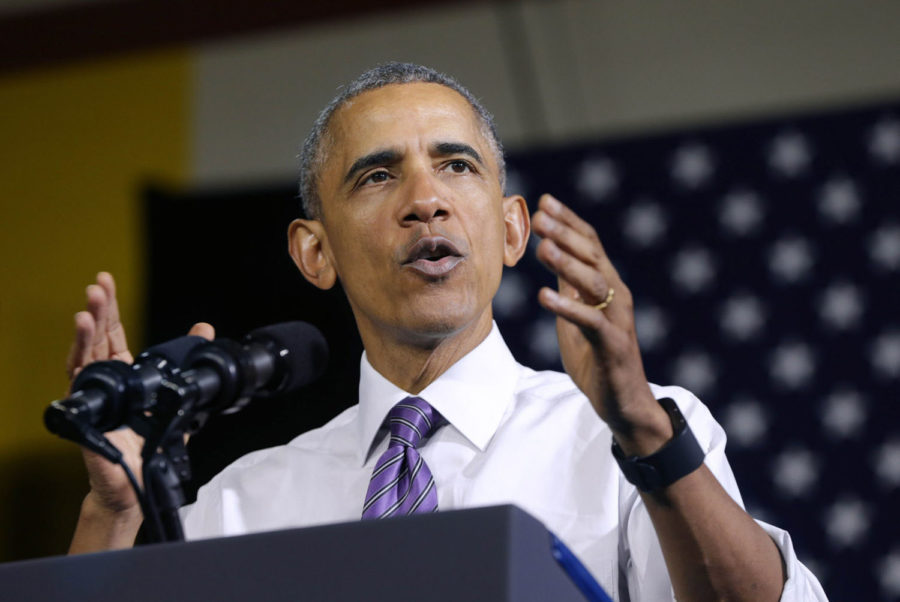Obama declares end to arms sale embargo for Vietnam
May 23, 2016
President Barack Obama on Monday declared a complete end to the longstanding U.S. embargo on the sale of lethal arms to Vietnam, a dramatic step that opens the way to greater military cooperation between the former foes as well as to an expanded American presence in the region.
Speaking to reporters after a private meeting with Vietnamese President Tran Dai Quang, Obama said he made the decision to completely wipe out the 50-year ban in order to strengthen ties with Vietnam, a key partner in trade and regional security.
The end of the ban will allow Vietnam “access to the equipment it needs to defend itself,” Obama said, and “remove a lingering vestige of the Cold War.”
Advertisement
But he and Quang did not immediately announce any significant changes to the human rights policies in Vietnam, a stumbling block for Obama as he considered whether to lift some or all of the ban. Human rights groups had urged the White House to keep the ban in place until Hanoi released political prisoners and lifted restrictions on journalists and dissidents.
The two leaders announced only that the Peace Corps would for the first time come to Vietnam, where the U.S. program has long been considered an operation of espionage during wartime.
Advisers to the president also said the two sides are continuing to talk about the treatment of opposition leaders and minority groups, describing those efforts as separate from the talk of increased military cooperation.
The lifting of the ban answers a longstanding request of the communist government in Hanoi as it seeks to shore up defenses in the region, particularly against territorial moves by China, a goal that also serves U.S. interests.
Obama administration officials have insisted for weeks that lifting the arms ban would not be a quid pro quo for increased access to Vietnam’s recently improved deep-water port at Cam Ranh Bay and other strategic points.
Instead, advisers to the president say, the move is an acknowledgement of the shared interest in providing a strong counterbalance to China, especially around the South China Sea, where there have been territorial disputes.
But announcing the change Monday, Obama said it was “not based on China,” but rather on the desire to keep moving toward normalization of relations with Vietnam.
Advertisement*
“Given all the work we do together,” he said, “it was appropriate for us not to have a blanket, across-the-board ban.”
The news came on the first day of Obama’s week-long trip to Asia. He spent most of the day meeting with Vietnamese leaders, including the president, the prime minister, the chairwoman of the national assembly and — perhaps the most powerful person in the picture — the general secretary of the Communist Party.
Obama usually avoids holding formal diplomatic sessions with anyone but the head of state, even in countries with complicated leadership regimes. But in the interest of winning over a broad base of support and deepening the relationship in this country, aides scheduled a full day of bilateral meetings to cover several bases.
(c)2016 Tribune Co.
Visit Tribune Co. at www.latimes.com
Distributed by Tribune Content Agency, LLC.
Advertisement








